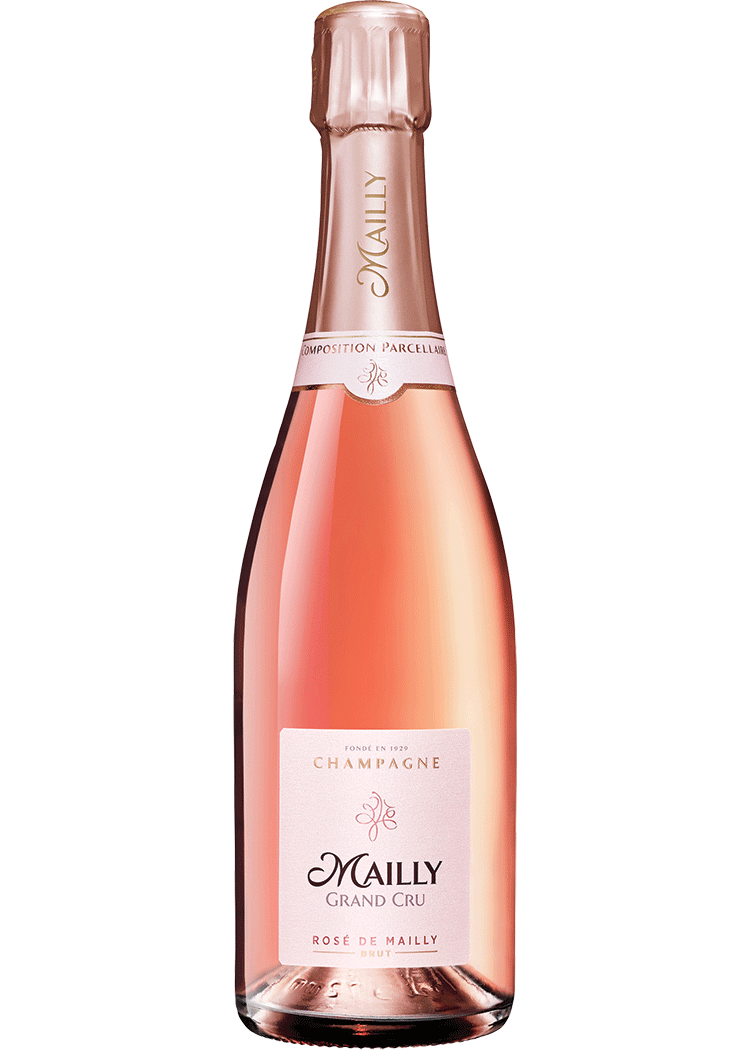tap to enlarge
Mailly Brut Rose Grand Cru Champagne
750ml
$64.99
*Price, vintage and availability may vary by store.
*Price, vintage and availability may vary by store.
Product Highlights
James Suckling-Champagne, France - "Candied strawberry with cantaloup and peach on both the nose and palate. Orange peel, too. Full-bodied with layers of fruit, yet theres firmness and real form to this, with bright acidity and a long, zesty finish. Dry at the end...Drink now."
RaspberryToast
Product Details
OVERVIEW
Producer Story
Mailly Champagnes are made in one of the Champagne region’s just 17 Grand Cru villages, noted for producing particularly fine grapes in the region’s famously chalky soil. The Mailly estate was founded in 1929 by a group of winegrowers who took the motto “à la tête par la main” – Together, we can make it happen. They set out to make richly expressive wines from grapes grown exclusively in the vineyards of their Grand Cru village.
Today, Mailly’s sustainably farmed vines are tended by some 80 winegrowers, all descended from the original group of men who established the estate, resolved to prove the magnificent potential of the Mailly terroir.
Geography
For centuries, French wines have set standards to inspire winemakers around the world. No other country has France’s long history of fine wine production, which has helped define wine styles around the world.
How significant is France in the world of wine? The most popular international grape varieties, from Chardonnay to Merlot to Cabernet Sauvignon, are native to France. In many years France produces (and consumes!) more wine than any other country. Its production and export of fine wines is unmatched.
The ancient Greeks were the first to take advantage of France’s potential for wine production, as they planted vines in their colonies along the Mediterranean coastline more than 2,500 years ago. After the Romans conquered Gaul in 51 B.C., they took vines and winemaking practices north across the land. In the following centuries, Christian monasteries became centers for viticulture, and their monks made pioneering advances in both winemaking and distilling. By the Middle Ages, the English had already recognized the excellence of wines of France, and while they controlled Bordeaux they expanded the region’s existing vineyards to supply the brand-new export market.
Varietal / Type
